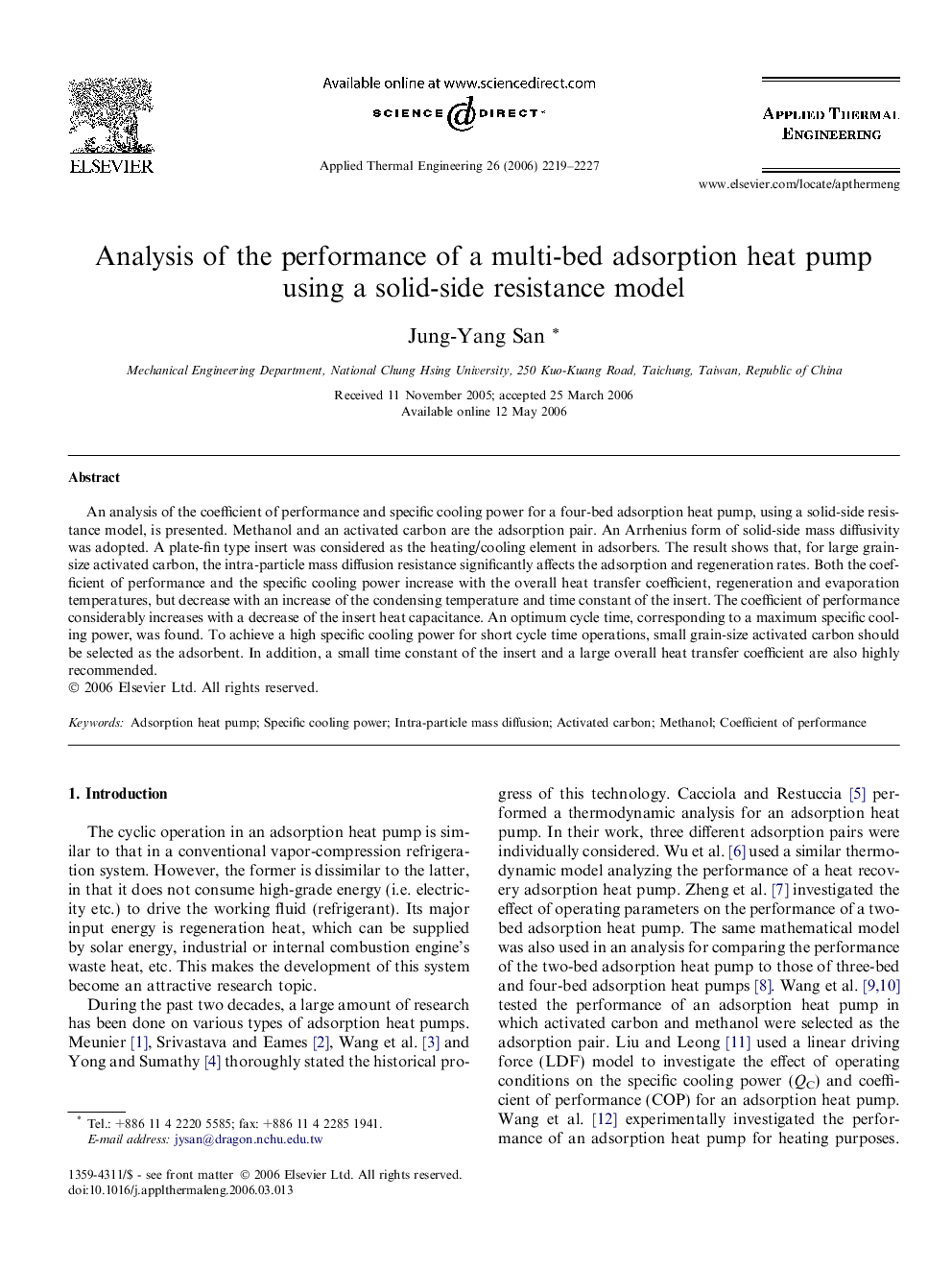| Article ID | Journal | Published Year | Pages | File Type |
|---|---|---|---|---|
| 649698 | Applied Thermal Engineering | 2006 | 9 Pages |
An analysis of the coefficient of performance and specific cooling power for a four-bed adsorption heat pump, using a solid-side resistance model, is presented. Methanol and an activated carbon are the adsorption pair. An Arrhenius form of solid-side mass diffusivity was adopted. A plate-fin type insert was considered as the heating/cooling element in adsorbers. The result shows that, for large grain-size activated carbon, the intra-particle mass diffusion resistance significantly affects the adsorption and regeneration rates. Both the coefficient of performance and the specific cooling power increase with the overall heat transfer coefficient, regeneration and evaporation temperatures, but decrease with an increase of the condensing temperature and time constant of the insert. The coefficient of performance considerably increases with a decrease of the insert heat capacitance. An optimum cycle time, corresponding to a maximum specific cooling power, was found. To achieve a high specific cooling power for short cycle time operations, small grain-size activated carbon should be selected as the adsorbent. In addition, a small time constant of the insert and a large overall heat transfer coefficient are also highly recommended.
